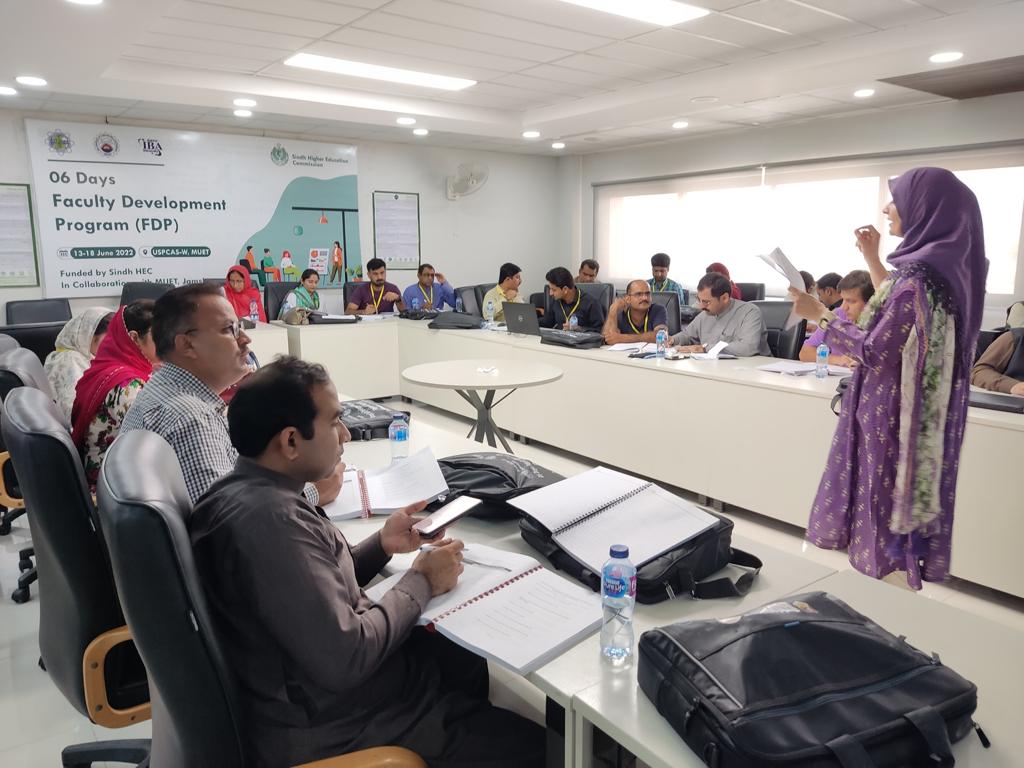Under this initiative, Sindh Higher Education Commission trains the faculty members of public and private sector universities. Sindh HEC believes that high-quality teaching is key to classroom proceedings as well as academic management and it will demonstrate Sindh HEC’s commitment to this principle. This programme helps strengthen the profession of teaching in Sindh by providing substantial professional learning opportunities and modeling high effective education practice. In addition, FDP will promote teaching innovations, improve faculty’s andragogic knowledge and skills, help university and affiliated college teacher to achieve their career goals and also support excellence by striving to model best practices in teaching and learning within all of its classes and by providing high quality development opportunities for all University and College teachers on one hand and academic management on the other. Since this idea has just been translated practically into a programme, Course and Contents are designed for the training of Faculties across province.
This year Sindh Higher Education Commission launched its flagship initiative, the “Faculty Development Programme,” across the province’s public universities. More than 300 newly appointed and early-career faculty members received training and had their professional needs met. After hours’ long meetings and rigorous consultation with experts, the content for the training was designed and created by renowned and seasoned professionals. This six-day training comprised of 17 sessions on teaching methodology; oral and written communication; microteaching; using online tools like Zoom, Google Forms, Shared Drives, etc.; quality assurance measures and the role of faculty members; ethical choices and professionalism in higher education. The training not only refreshed the skills of newly appointed faculty members but also introduced them to the latest trends in teaching, research, professionalism, and ethics required for such a prestigious profession. Three cluster training centres were designated to conduct this training, and the first phase of this training was completed at IBA Sukkur, MUET and NEDUET where faculty members from neighbouring universities participated and gained knowledge from the experiences of highly qualified resource persons.
